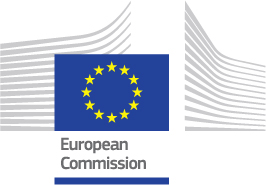Nurturing thoughtful minds through collaboration and eTwinning
Course details
In today’s ever-evolving educational landscape, fostering critical thinking is essential for preparing students to navigate complex challenges and make responsible decisions. This course focuses on how collaboration and group work can serve as powerful tools for developing critical thinking skills while nurturing citizenship, aligning with this year’s eTwinning theme.
Our journey begins with a shift in mindset, encouraging educators to adopt a growth mindset and an innovator’s mindset—key attitudes for creating a classroom culture where critical thinking thrives. Anchored in the 6C’s of 21st Century Learning, this session emphasises Critical Thinking and Citizenship, exploring how these interconnected competencies help students become thoughtful, engaged global citizens.
Participants will gain practical insights and hands-on experience with tools and strategies for designing collaborative activities that enhance critical thinking. The course will introduce a variety of digital tools, including innovative examples of leveraging Artificial Intelligence (AI) to promote critical thinking in the classroom. Additionally, we will highlight how eTwinning projects provide a dynamic platform for fostering these skills through cross-border collaboration.
The aim of the course is to equip educators with the mindset, tools, and methods to make critical thinking and citizenship the core of teaching. Together, we will empower students to think critically, act responsibly, and thrive in an interconnected world.
The course is offered by the European School Education Platform. Visit our website for more information.
Duration and workload
Start and end date: open-ended, you can take this course (or any section) at your own pace
Duration: self-paced
Workload: 8-10 hours
Before we start, we would like to highlight the structure and key features of this course to help you plan your learning and successfully complete the course.
This course is based on a version that ran from Monday, 24 February 2025, to Wednesday, 5 March 2025. The original course provided participants with opportunities to interact during a specific active timeframe of 2.5 weeks, exchange ideas, prepare their final activity and engage in the peer assessment process. However, we recognise that not everyone was able to attend during the scheduled timeline.
To make the course accessible to a wider audience, we’ve developed this self-paced format. This version allows you to explore the content and complete the activities at your own pace, whenever it suits you best.
What the self-study format means:
- Flexible schedule: You decide when and how to engage with the course materials. There are no deadlines, live sessions, or required meeting times.
- Independent learning: While the original course included discussions and peer reviews taking place in certain days and weeks, this format empowers you to work independently, using the same materials and guidance provided during the initial version. Please note that discussions in the forums and contributions on the different external tools (ex. Padlet)will not be moderated, allowing for a fully self-directed learning experience.
- Self-assessment: To replicate some of the reflective benefits of peer feedback, you will be encouraged to evaluate your own work using the provided assessment criteria.
Course competences
This course includes content & activities that develop the following competences according to the digital competence framework of the European Commission's Selfie for Teachers tool:
- Professional Engagement - Professional Learning through digital technologies B1 level
- Professional Engagement - Professional collaboration B1 level
- Teaching and Learning - Teaching B1 level
For more information about the competences and the proficiency levels see the SELFIE for TEACHERs toolkit.
The course is offered by the European School Education Platform. Visit our website for more information.
Target audience
The course targets eTwinning school teachers of all subjects and grade levels, aiming to empower them to educate their students on the topic of enhancing critical thinking through group work and collaboration
Learning objectives
- Understand the importance of fostering critical thinking through group work and collaboration.
- Identify the key elements of the growth mindset and innovator’s mindset in teaching.
- Explore and apply the 6C’s of 21st-Century Skills, with a focus on Critical Thinking and Citizenship.
- Design and implement collaborative activities that develop students’ critical thinking skills, also using MLTV routines to make thinking visible and deepen student engagement.
- Integrate digital tools, including AI, to enhance collaborative learning experiences.
- Plan and create a tailored collaborative activity for their classroom using course concepts.
- Leverage eTwinning projects to foster cross-border collaboration and global citizenship.
This content is offered by the European Commission. The European Commission is the European Union's politically independent executive arm. It is alone responsible for drawing up proposals for new European legislation, and it implements the decisions of the European Parliament and the Council of the European Union.

Schedule
- Disclaimer: course tailored to eTwinners
- How this self-paced course works
- Module 1: Laying the foundation for thoughtful minds
- Module 2: Practical strategies for collaboration with thinking routines and digital tools
- Module 3: Final activity — Applying what you’ve learned
- Concluding this self-paced course


